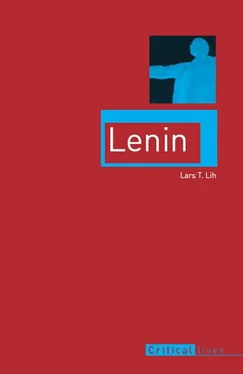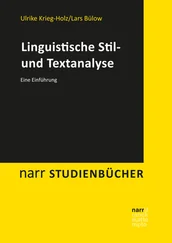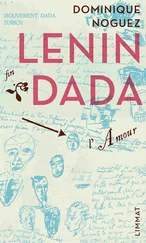Lars Lih - Lenin
Здесь есть возможность читать онлайн «Lars Lih - Lenin» весь текст электронной книги совершенно бесплатно (целиком полную версию без сокращений). В некоторых случаях можно слушать аудио, скачать через торрент в формате fb2 и присутствует краткое содержание. Город: London, Год выпуска: 2012, ISBN: 2012, Издательство: Reaktion Books, Жанр: Биографии и Мемуары, История, на английском языке. Описание произведения, (предисловие) а так же отзывы посетителей доступны на портале библиотеки ЛибКат.
- Название:Lenin
- Автор:
- Издательство:Reaktion Books
- Жанр:
- Год:2012
- Город:London
- ISBN:9781780230030
- Рейтинг книги:3 / 5. Голосов: 1
-
Избранное:Добавить в избранное
- Отзывы:
-
Ваша оценка:
- 60
- 1
- 2
- 3
- 4
- 5
Lenin: краткое содержание, описание и аннотация
Предлагаем к чтению аннотацию, описание, краткое содержание или предисловие (зависит от того, что написал сам автор книги «Lenin»). Если вы не нашли необходимую информацию о книге — напишите в комментариях, мы постараемся отыскать её.
Lenin — читать онлайн бесплатно полную книгу (весь текст) целиком
Ниже представлен текст книги, разбитый по страницам. Система сохранения места последней прочитанной страницы, позволяет с удобством читать онлайн бесплатно книгу «Lenin», без необходимости каждый раз заново искать на чём Вы остановились. Поставьте закладку, и сможете в любой момент перейти на страницу, на которой закончили чтение.
Интервал:
Закладка:
Even in the case of Lenin’s seminal work of 1902, What Is to Be Done? , scholars were much more interested in drawing out what they saw as the doctrinal implications of some of his passing polemical remarks than in the real heart of the book, namely, Lenin’s attempt to inspire underground activists with a heroic vision of leadership. In this way scholars used Lenin’s homework assignments to construct an elaborate doctrine entitled ‘Leninism’ and then proceeded to contrast their creation with ‘Marxism’, concluding that Lenin was an innovative, indeed revisionist, Marxist theoretician. 4
Starting in the mid-1980s the Soviet archives began to be opened and a new portrait of Lenin emerged. Paradoxically the opening of the archives, so immensely beneficial in other areas of Soviet history, led to even further decontextualizing of Lenin/Ulyanov. Research proceeded on the (possibly unconscious) assumption that newly declassified documents would unlock the secret of the real Lenin. Yet these new documents were themselves highly selective, and for an obvious reason. What sort of Lenin documents would the Soviet authorities keep under lock and key? Obviously, those documents that created problems for the official Soviet interpretation of Lenin, and in particular for the carefully cultivated image of his impeccable virtue and humanity. Keeping back these documents was a crime against scholarship, but not quite as intellectually vulnerable as the creation of a portrait of Lenin based on these documents alone. Oliver Cromwell insisted that his portrait should include ‘warts and all’. Post-Soviet studies of Lenin often seem to be based on a methodology of ‘nothing but warts’. 5
The spotlight was now on the quirks of Ulyanov rather than the doctrines of Lenin. Much interest was excited, for example, by Ulyanov’s sex life. Books with titles like Lenin’s Mistress appeared. 6His political life was reduced to a number of shocking statements, mostly from the time of the Russian civil war, in which he demanded energetic repression. Sometimes it seemed as if the whole vast drama of the Russian revolution and its tragic outcomes were caused by one man’s intolerance and cruelty. Even the major large-scale biographies by Dmitri Volkogonov and Robert Service showed little understanding or even interest in explicating and contextualizing what was, after all, one of Ulyanov’s central claims to fame: the political outlook associated with the writings of N. Lenin. 7
The aim of the present biographical essay is to keep the focus on both Ulyanov the flesh-and-blood personage and his rhetorical creation, N. Lenin. This is all the more necessary because the ideas of N. Lenin cannot be understood apart from the emotions Ulyanov invested in them, and Ulyanov’s emotional life cannot be understood apart from the ideas associated with N. Lenin . (Having used the distinction between ‘Lenin’ and ‘Ulyanov’ to make this fundamental point, I will henceforth revert to the normal usage of referring to the historical personage by his most famous penname.)
In early 1917 Lenin wrote to his close friend Inessa Armand that ‘I am still completely “in love” with Marx and Engels, and I can’t stand to hear them abused. No, really – they are the genuine article.’ 8We should take this statement as the literal truth. Lenin was truly in love with the ideas of Marx and Engels. In similar fashion, the most fraught, long-lived and emotional relationship of Lenin’s life was his changing attitude toward the most distinguished Marxist of his generation, Karl Kautsky – or rather, with Kautsky’s writings.
But can a formal doctrine, with generalized propositions connected by logical implication, inspire such love? Not in Lenin’s case. His emotional fervour was inspired by a lifelong scenario by means of which he interpreted the eventful world around him. The key theme of this scenario was heroic class leadership . The theme of class leadership had two levels. First, most fundamentally, leadership by the class – that is, the Russian proletariat’s leadership of the whole Russian people, made up predominantly of peasants. Narod is the Russian word for ‘the people’, and (like Volk in German and le peuple in French) it has an emotional force completely lacking in the English noun ‘the people’. For Lenin the urban proletariat was only one part of the narod , but a part to whom history had given a special mission of leadership.
The centrality of this theme to Lenin’s outlook was brought out by his widow, Nadezhda Krupskaya, in her eulogy after Lenin’s death in 1924. The Russian word used here for ‘leader’ – vozhd – is a key term in Lenin’s rhetoric throughout his life:
His work [in the early 1890s] among the workers of Piter [St Petersburg], conversations with these workers, attentive listening to their speeches, gave Vladimir Ilich an understanding of the grand idea of Marx: the idea that the working class is the advanced detachment of all the labourers and that all the labouring masses, all the oppressed, will follow it: this is its strength and the pledge of its victory. Only as vozhd [leader] of all the labourers will the working class achieve victory…. And this thought, this idea illuminated all of his later activity, each and every step. 9
Lenin also had a romantic view of leadership within the class. He sought to inspire the rank-and-file activist – the praktik – with an exalted idea of what their own leadership could accomplish. In What Is to Be Done? (1902), he challenged his opponents: ‘You brag about your practicality and you don’t see (a fact known to any Russian praktik ) what miracles for the revolutionary cause can be brought about not only by a circle but by a lone individual.’ 10
The party inspires the workers with a sense of their great mission to lead the narod , and the proletariat then carries out this mission by inspiring the narod to join the workers in their crusade to overthrow tsarism, thereby opening up the road that ultimately leads to socialism – this is Lenin’s scenario. Thus the two levels of heroic class leadership are interconnected, as eloquently described by Robert Tucker, one of the few scholars to fully grasp the essential content of what Lenin himself called his dream:
To understand Lenin’s political conception in its totality, it is important to realize that he saw in his mind’s eye not merely the militant organization of professional revolutionaries of which he spoke, but the party-led popular movement ‘of the entire people’. The ‘dream’ was by no means simply a party dream although it centred in the party as the vanguard of conscious revolutionaries acting as teachers and organizers of a much larger mass following in the movement. The dream was vision of an anti-state popular Russia raised up by propaganda and agitation as a vast army of fighters against the official Russia headed by the tsar. 11
Lenin’s scenario was heroic, even grandiose. For Lenin, anyone who failed to share his exalted sense of historical events was a ‘philistine’. The Russian language has a rich vocabulary for attacking philistinism – not only filisterstvo , but obyvatelshchina , meshchanstvo and poshlost . Lenin constantly deploys this vocab ulary in his polemics, mainly against other socialists.
The aim of the present biographical essay is to outline Lenin’s heroic scenario, show both its complexity and its thematic unity, reveal the source of Lenin’s emotional attachment to it and document its changing role at each stage of his career. The concise format of the Critical Lives series is ideal for this purpose: any shorter and the life-long role of the heroic scenario would be obscured, any longer and the underlying unity of Lenin’s outlook would be similarly obscured. These goals impose a strict focus that determines what needs to be said and what (with great regret) has to be left out for the present. My ambition is to bring out a recurring pattern . Once this pattern is perceived, it will easily be recognized by anyone who picks up Lenin’s writings and reads more than a few pages.
Читать дальшеИнтервал:
Закладка:
Похожие книги на «Lenin»
Представляем Вашему вниманию похожие книги на «Lenin» списком для выбора. Мы отобрали схожую по названию и смыслу литературу в надежде предоставить читателям больше вариантов отыскать новые, интересные, ещё непрочитанные произведения.
Обсуждение, отзывы о книге «Lenin» и просто собственные мнения читателей. Оставьте ваши комментарии, напишите, что Вы думаете о произведении, его смысле или главных героях. Укажите что конкретно понравилось, а что нет, и почему Вы так считаете.












